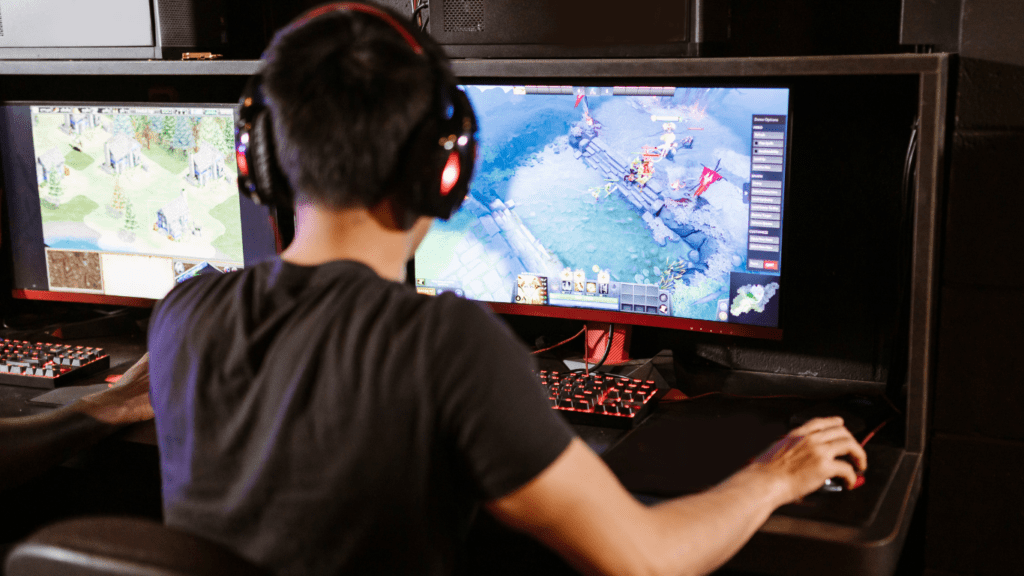In the fast-paced world of modern game design, Artificial Intelligence (AI) is not just a buzzword; it’s a game-changer. As a seasoned game developer, I’ve witnessed firsthand how AI has revolutionized the way games are created, played, and experienced. Gone are the days of predictable NPCs and scripted encounters – AI now breathes life into virtual worlds, adapting to player choices and behaviors in ways that were once unimaginable.
From crafting dynamic enemy behaviors to generating immersive virtual environments, AI has become the secret sauce behind some of the most captivating gaming experiences of our time. In this article, I’ll delve into the intricate dance between AI algorithms and game design principles, exploring how this powerful technology is shaping the future of interactive entertainment. Join me on a journey through the digital landscapes where AI reigns supreme, and discover the limitless possibilities it offers to both developers and gamers alike.
Understanding Artificial Intelligence in Game Design
Artificial Intelligence (AI) plays a pivotal role in shaping modern game design practices. In developing games, I leverage AI to create dynamic and adaptive gameplay experiences that respond intelligently to player actions. This enables me to craft virtual worlds that evolve and challenge players in exciting ways based on their decisions and behavior.
When integrating AI into game design, I focus on creating lifelike behaviors for non-playable characters (NPCs) and designing intricate enemy AI that can learn, strategize, and adapt throughout the game. By leveraging AI algorithms, I can enhance the overall immersion and engagement of players within the game environment, making the gaming experience more realistic and interactive.
AI technology empowers me to design games that offer personalized challenges and unique experiences for each player. Through AI-driven mechanisms, I can create diverse scenarios, complex decision-making processes, and adaptive gameplay that keep players engaged and entertained. By incorporating AI into game development, I tap into its potential to revolutionize the gaming industry and set new standards for interactive entertainment.
Benefits of Implementing AI in Modern Games
Artificial Intelligence (AI) in modern game design offers a myriad of benefits that significantly elevate the player experience and gameplay dynamics.
Enhanced Player Experience
Implementing AI in games enhances player experience by creating more immersive and personalized interactions. AI-driven characters can adapt to each player’s unique style, providing tailored challenges and experiences. This personalization creates a deeper sense of engagement and connection between players and the game world.
Dynamic Gameplay
By integrating AI into modern games, developers can create dynamic gameplay experiences that evolve based on player choices and actions. AI algorithms enable virtual worlds to react in real-time to player decisions, leading to unpredictable outcomes and increased replay value. This dynamic nature keeps players engaged and excited, ensuring a fresh and challenging experience with each playthrough.
Challenges Faced in Integrating AI into Game Design
Integrating artificial intelligence (AI) into game design presents several challenges that developers need to address to ensure a seamless gaming experience. These challenges stem from the complexity of AI algorithms and the need to balance player interactions with AI-driven mechanics. Here, I’ll outline some key hurdles faced in incorporating AI into modern game design:
- AI Behavior Prediction: Predicting player behavior accurately is a significant challenge in AI integration. It requires sophisticated algorithms to anticipate various player responses and adapt game scenarios accordingly.
- Resource Intensiveness: Implementing advanced AI systems can be resource-intensive, requiring powerful hardware and substantial development time. Balancing computational demands with optimal performance is crucial.
- Player Experience Calibration: Ensuring that AI-driven interactions enhance, rather than detract from, the player experience is essential. Fine-tuning AI behaviors to provide engaging challenges without overwhelming players is a delicate balance.
- Data Privacy and Ethics: Collecting and utilizing player data for AI decision-making raise concerns about data privacy and ethical considerations. Developers must navigate these issues responsibly to maintain player trust.
- Algorithm Bias and Fairness: AI algorithms may inherit biases or unfairness, impacting gameplay experiences. Mitigating algorithmic biases and ensuring fairness in AI interactions are critical for inclusive and enjoyable gameplay.
- Adaptability and Learning: Creating AI systems that can learn from player interactions and adapt dynamically adds complexity. Ensuring AI adaptability while maintaining game balance is a significant challenge for developers.
Addressing these challenges in integrating AI into game design is essential to leverage the full potential of AI for enhancing player experiences and driving innovation in the gaming industry. By overcoming these hurdles, developers can create immersive, engaging, and dynamic gaming environments that push the boundaries of interactive entertainment.
Future Outlook of Artificial Intelligence in Game Development
Looking ahead, the future of artificial intelligence (AI) in game development is exceptionally promising. AI technology continues to advance rapidly, paving the way for even more sophisticated applications within the gaming industry. Developers are constantly exploring innovative ways to leverage AI algorithms to create truly immersive and dynamic gaming experiences.
In upcoming years, AI is expected to play an increasingly pivotal role in shaping the future of game design. With the continued evolution of machine learning techniques and deep neural networks, AI systems will become even more adept at understanding player behaviors and preferences. This enhanced understanding will enable game developers to tailor experiences on an individual level, delivering personalized challenges and content to each player.
Moreover, the integration of AI is projected to revolutionize the procedural generation of game content. AI algorithms can generate vast and diverse virtual worlds with minimal human intervention, offering endless possibilities for designers and ensuring that no two gaming experiences are alike. This capability will not only streamline the development process but also lead to the creation of more engaging and unpredictable game environments.
Another aspect of the future outlook lies in the enhancement of AI-driven NPCs and enemy behaviors. As AI technologies become more sophisticated, non-playable characters and enemies will exhibit even more complex and lifelike interactions, blurring the lines between AI and human behavior. This advancement will result in more challenging and realistic adversaries, ultimately enhancing the overall gaming experience for players.
Furthermore, the future of AI in game development will focus on addressing current challenges such as algorithm biases, ethical concerns, and data privacy issues. Developers are actively working to create AI systems that are transparent, fair, and respectful of user data, ensuring a safe and inclusive gaming environment for all players.
The future of artificial intelligence in game development is full of exciting possibilities. As AI technology continues to evolve, it will undoubtedly drive innovation, creativity, and immersion in the gaming industry, offering players experiences that are more personalized, engaging, and dynamic than ever before.


 Leeyo Mattisonell, the founder of The Code Crafters Hub, is a trailblazer in the realm of software development and technology. With a passion for advancing the field, Mattisonell established The Code Crafters Hub as a premier destination for both software professionals and enthusiasts. His vision was to create a platform that not only delivers the latest industry news but also offers valuable insights into web and game development. Under his leadership, the hub has become a vital resource for understanding emerging technologies, including the Internet of Things (IoT) and cybersecurity trends. Mattisonell’s dedication to providing cutting-edge content ensures that the platform remains at the forefront of the ever-evolving tech landscape.
Mattisonell’s commitment to excellence is evident in the comprehensive and timely updates featured on The Code Crafters Hub. By focusing on dynamic web development techniques, game development innovations, and practical cybersecurity tips, he has positioned the hub as an essential tool for developers at all stages of their careers. Located in Warren, MI, and operating from 9 AM to 5 PM, the hub reflects Mattisonell’s dedication to fostering a knowledgeable and secure tech community. His leadership continues to drive the platform’s success, making it an invaluable resource for anyone looking to stay ahead..
Leeyo Mattisonell, the founder of The Code Crafters Hub, is a trailblazer in the realm of software development and technology. With a passion for advancing the field, Mattisonell established The Code Crafters Hub as a premier destination for both software professionals and enthusiasts. His vision was to create a platform that not only delivers the latest industry news but also offers valuable insights into web and game development. Under his leadership, the hub has become a vital resource for understanding emerging technologies, including the Internet of Things (IoT) and cybersecurity trends. Mattisonell’s dedication to providing cutting-edge content ensures that the platform remains at the forefront of the ever-evolving tech landscape.
Mattisonell’s commitment to excellence is evident in the comprehensive and timely updates featured on The Code Crafters Hub. By focusing on dynamic web development techniques, game development innovations, and practical cybersecurity tips, he has positioned the hub as an essential tool for developers at all stages of their careers. Located in Warren, MI, and operating from 9 AM to 5 PM, the hub reflects Mattisonell’s dedication to fostering a knowledgeable and secure tech community. His leadership continues to drive the platform’s success, making it an invaluable resource for anyone looking to stay ahead..
